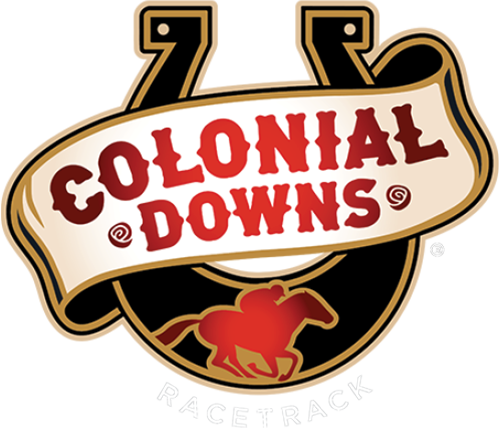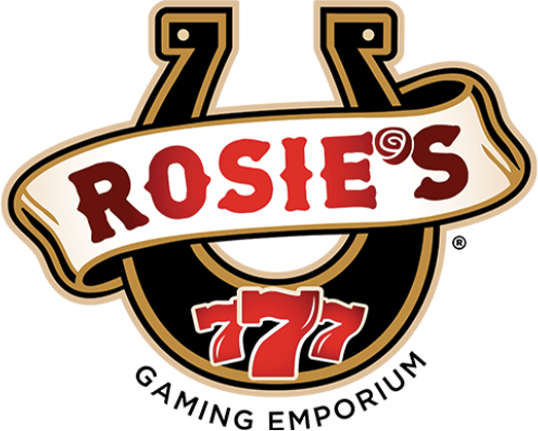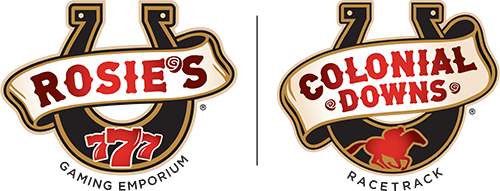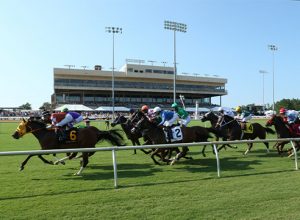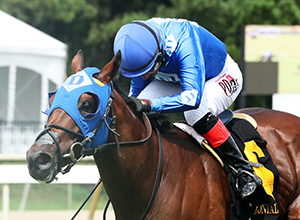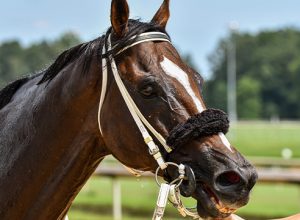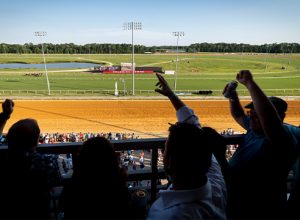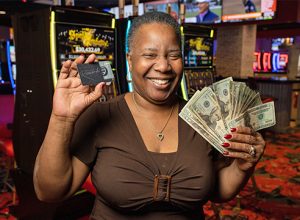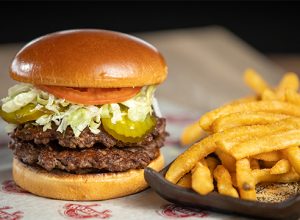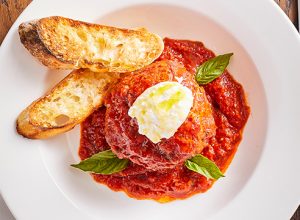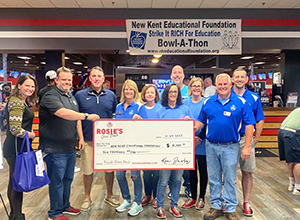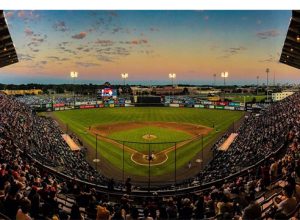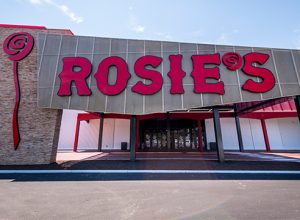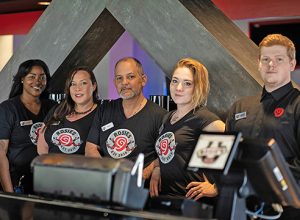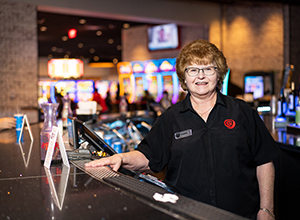‘Failure is not an option.’ Colonial Downs prepares for a full season of racing
Posted on July 9th, 2021
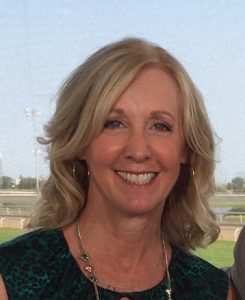
When the horses return to Colonial Downs in early July it will feel like a homecoming for Jill Byrne. The vice president of racing has always been around horses and held high-profile jobs in the racing world.
She describes the make-or-break 2021 season at Colonial Downs in New Kent that begins on July 19 as her biggest challenge in three decades in the industry.
An escort horse waits to take a thoroughbred to the starting gate at Colonial Downs on Aug. 9, 2019. Staff file (Rob Ostermaier / Daily Press) Byrne is a horse lover who “stalked” Secretariat at Saratoga as a young girl. She grew up in Barboursville in the heart of Virginia’s equine country. Her father, Peter Howe, was a rider and a trainer who trained two Eclipse Award winners. “My father put me on my first racehorse to gallop when I was 12 but I was riding show horses from the time I was probably 2 or 3 years old,” she said.
Byrne spent her summers at Belmont Park and Saratoga racetracks in New York and went to work for famous trainers. Her then-husband Patrick Byrne was the trainer of 1997 Horse of the Year and Eclipse Award winners Favorite Trick and Countess Diana as well as Awesome Again, the 1998 Breeders’ Cup Classic winner.
Before she returned to Virginia to take a position at Colonial Downs two years ago, Byrne worked as the director of Broadcast and Programing at Churchill Downs Racetrack in Kentucky and the senior director of racing for the Breeder’s Cup.
Her arrival in New Kent coincided with a new era at Virginia’s only thoroughbred racecourse. Colonial Downs was shuttered for five years from 2014 following disputes between the owner and the Virginia Horsemen’s Benevolent and Protective Association. Peninsula Pacific Entertainment bought the course and racing resumed in 2019.
“It was great. We were able to attract a great racing team. Everybody wanted to be a part of the rebirth of Colonial Downs,” Byrne said. The course was pulling in a purse of $500,000 a day, one of the highest in the nation.
Money brought success but Byrne said Colonial Downs is also a beautiful facility with extensive barn areas and “second-to-none” grass and dirt tracks.
“We had all the ingredients for success. We had a very successful 2019 and were prepared to build off of that with even more improvements. Then COVID hit,” Byrne said.
“It whacked us right in the head. It was tough on the horsemen who lost out the most by not being able to race and make money,” she said. Colonial Downs operated without fans initially in 2020 but canceled the remainder of last year’s meet after positive COVID-19 tests.
The pressure is now on for the 2021 meet that begins July 19. Byrne said the track has been preparing for the season since September.
“We are back. We have put that behind us and are ready to absolutely have an incredible racing season this year,” she said.
Colonial Downs plans 21 days of racing this summer compared to six in 2020 and 18 in 2019. The purse will be a minimum of $500,000 a day, putting Colonial Downs in the top three courses in the country for summer meets. As many as 850 horses are expected to arrive at the racecourse over the summer months.
“The core of everything we do is to put on a safe race meet,” said Byrne. “It’s great that we can have fans back because racing lends so well to spectators.”
The racecourse and the Rosie’s Gaming Emporiums that Colonial Downs operates are expected to attract about 200 additional seasonal workers. However, the course has experienced the recruitment issues felt across the entertainment industry in the wake of the pandemic.
“We are doing a lot of creative things to get people here, offering hiring bonuses,” Byrne said.
Byrne said the 2021 season is the greatest challenge of her career but she relishes it.
“I want the best for Colonial Downs racetrack and for the horse industry in Virginia to succeed,” she said, “Failure’s not an option.”
Darrell Wood of the Virginia Equine Alliance said Colonial Downs’ racetrack is extremely attractive to riders. The dirt track at a mile-and-a-quarter is the second largest in the county after Belmont while the turf track is the widest grass racing surface in the country.
“Because our season’s only seven weeks long, we can use that grass course as much as we want knowing it’s got the rest of the year to come back for racing the next year. That’s why horses come here,” he said.
Wood said while only the best horses can run on grass at most courses, the extensive grass area allows more extensive turf racing at Colonial Downs.
“We like to think it’s the best turf course in the country,” he said.
“There’s a lot of cautious optimism,” he said of the forthcoming season.
David Macaulay, [email protected]

